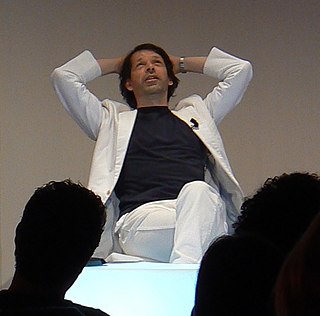A Quote by Arlie Russell Hochschild
As motherhood as a "private enterprise" declines and more mothers rely on the work of lower-paid specialists, the value accorded the work of mothering (not the value of children) has declined for women, making it all the harder for men to take it up.
Related Quotes
Ideas about mothers have swung historically with the roles of women. When women were needed to work the fields or shops, experts claimed that children didn't need them much. Mothers, who might be too soft and sentimental, could even be bad for children's character development. But when men left home during the Industrial Revolution to work elsewhere, women were "needed" at home. The cult of domesticity and motherhood became a virtue that kept women in their place.
The deepest change begins with men raising children as much as women do and women being equal actors in the world outside the home. There are many ways of supporting that, from something as simple as paid sick leave and flexible work hours to attributing an economic value to all caregiving and making that amount tax deductible.
Both at-home and working mothers can overmeet their mothering responsibilities. In order to justify their jobs, working mothers can overnurture, overconnect with, and overschedule their children into activities and classes. Similarly, some at-home mothers,... can make at- home mothering into a bigger deal than it is, over stimulating, overeducating, and overwhelming their children with purposeful attention.
There are new studies showing that young men and men with more progressive views of what a father should be - which is not just a helper and fun parent, but actually a partner - are beginning to feel more work-life conflict than mothers are. They're trying to do what women have been doing for 30 years, and they're having a very stressful time of it - a harder time at work because we still expect men to be on 24-7, working 40 years straight.
We're contemptuous of 'distracted' working mothers. We're contemptuous of 'selfish' rich mothers. We're contemptuous of mothers who have no choice but to work, but also of mothers who don't need to work and still fail to fulfill an impossible ideal of selfless motherhood. You don't have to look very hard to see the common denominator.
The legacy of women's war work is our present post-industrial employment structure. It was the war that created the demand for a technologically advanced, de-skilled, low-paid, non-unionized female workforce and paved the way for making part-time work the norm for married women now. A generation later, it was the daughters of wartime women workers who completed their mothers' campaign for equal pay.
If we are ever to construct a feminist movement that is not based on the premise that men and women are always at war with one another, then we must be willing to acknowledge the appropriateness of complex critical responses to writing by men even if it is sexist. Clearly women can learn from writers whose work is sexist, even be inspired by it, because sexism may be simply one dimension of that work. Concurrently fiercely critiquing the sexism does not mean that one does not value the work.



































